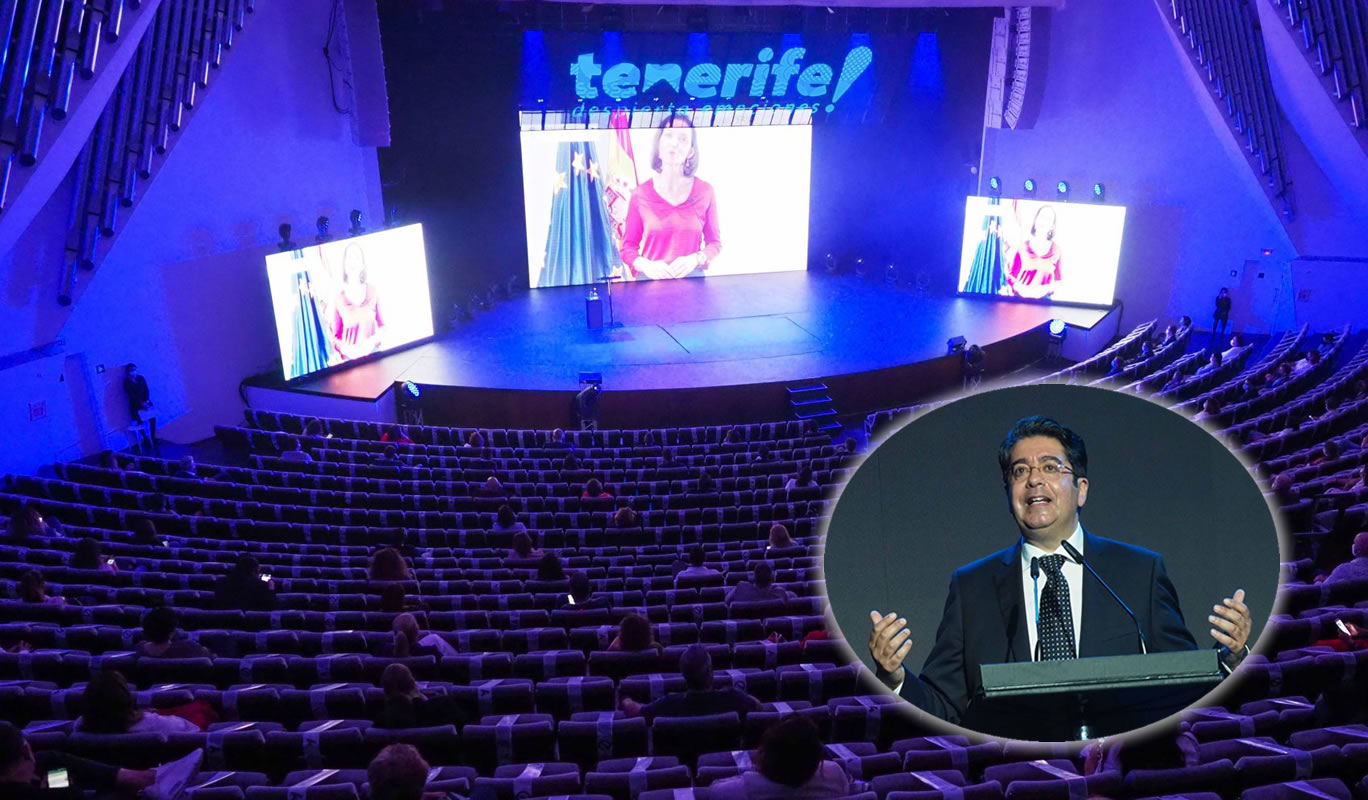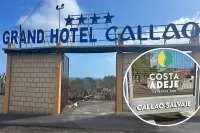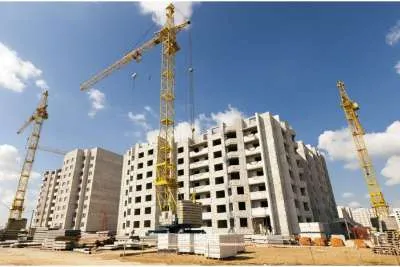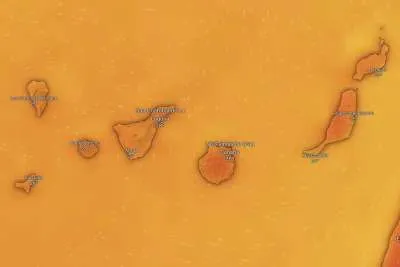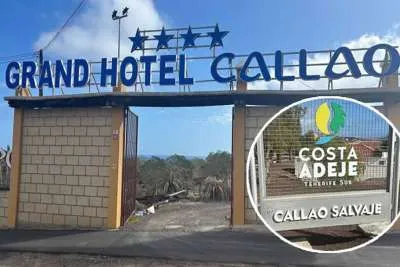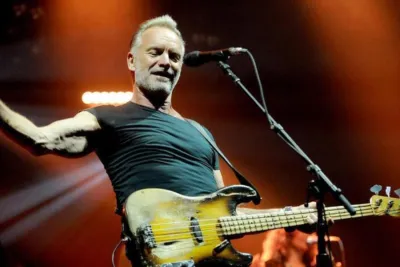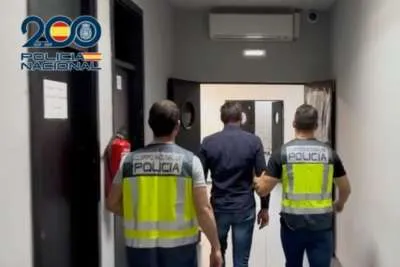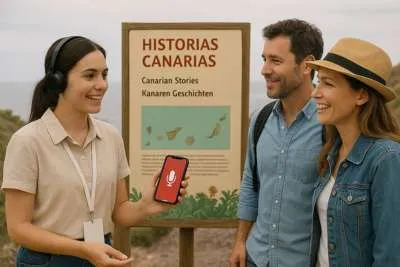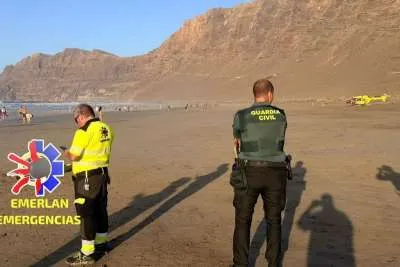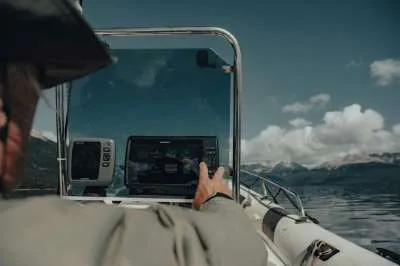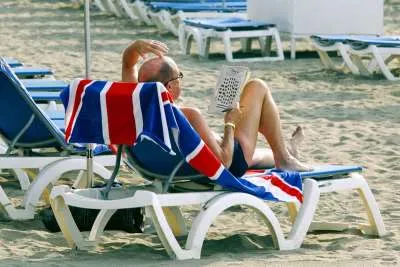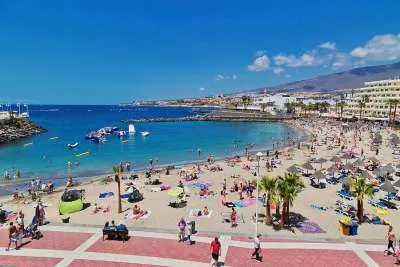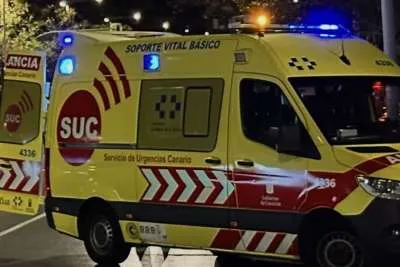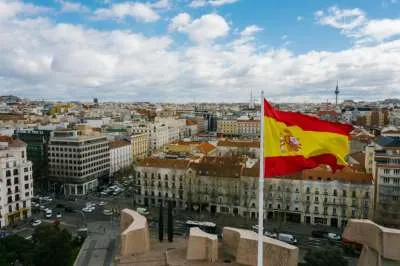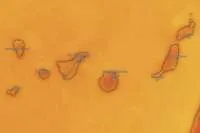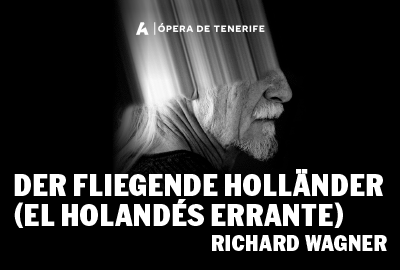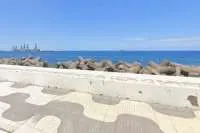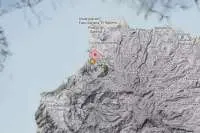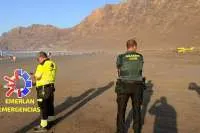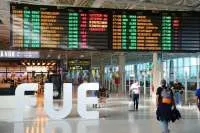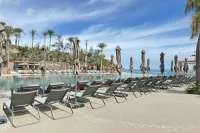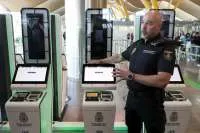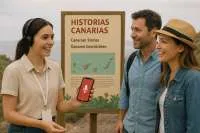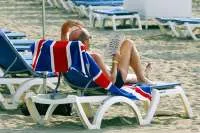Tenerife presents new tourist image to be a ‘world benchmark’ for travel
- 15-04-2021
- Tenerife
- Canarian Weekly
"Love, fun, hope, serenity, interest, joy, pride, inspiration, gratitude and equality." These 10 sensations on how Tenerife awakens emotions, is what the new tourist image of the Island aims to convey. It is an unprecedented promotion strategy, with online and offline actions, which they have been working on for over a year, and is the axis to back up the recovery of Tenerife's economic lung, severely damaged by the outbreak of the Covid-19 pandemic.
Yesterday the president of the Tenerife Cabildo, Pedro Martín, presented Tenerife’s new approach to tourism at the Auditorium in Santa Cruz, and expressed his confidence that this year close to 60% of the visitors who arrived on the island in 2019 can be reached, driven by the British vaccination campaign.
‘Tenerife Awakens Emotions’ is the new tourism brand with which the Island will be exhibited to its source markets in this reactivation period after Covid-19. A commercial image that is framed within a broad and ambitious strategy developed by the Cabildo, and that will bring with it the articulation of other types of actions such as event organization, online and offline promotion, creation of new communication channels with the foreign public or digitization of companies and administrations linked to this activity.
In the presentation of the brand, which took place yesterday at the Adán Martín Auditorium, with a live broadcast over the Internet, it was emphasized that it is a set of changes that will be carried out in a transversal way, involving different insular departments, with one eye on emotions. "Tenerife, beyond being a place to visit, is a place of emotions," read one of the video clips played during the event, which was characterized by scrupulous health protocols to prevent the spread of the virus.
Among the highlights of the Island as a destination, “the love for our exuberant and diverse nature” was highlighted; the hope of rediscovering our best version; the serenity provided by such a privileged place in the Atlantic or the interest generated by its cultural wealth and being at the forefront in terms of infrastructures and spaces, apart from many other potentialities that characterize what has become the number 1 vacation destination in the Archipelago. Some strong that, in the opinion of the institutions involved in the design of the campaign, should be encouraged to go one step further and make Tenerife "a world benchmark" in the productive sector.
VACCINATION:
If there is a determining factor in the future of Tenerife's economic engine, it will be vaccination against the coronavirus, as all those involved in the event wanted to point out. In this sense, the president of the Cabildo, Pedro Martín, explained that he has started from a scenario in which overnight stays experienced a drop of 93%, assuming that "the sector was left broken by the pandemic." And now, with the high rates of inoculation of the remedy against the virus in the main source market of Tenerife, the UK, a halo of hope emerges.
In the same way, he said he recognizes that "every day thing change and the goalposts move", citing as an example of this permanent instability the mistrust that vaccines such as AstraZeneca or Janssen have shown. Or the epidemiological scenario itself, given that the cumulative incidence - positive cases per 100,000 inhabitants detected in the previous seven days - varies from one week to another, and, therefore, restrictions on mobility, catering and hospitality establishments, as well as activities in closed spaces or outdoors.
However, he predicted, using the estimates that the island institution manages, that throughout this year 5.3 million visitors will be reached, bringing the tourist figures back to 61% of the 2019 quota. We are already working with the British market, where "there is good news" due to the increasing level of immunity, and Germany, which, despite currently experiencing difficult times, thanks to the "capacity and strength" of its health system, Martín trusts that "will recover soon." In addition, contacts are maintained with other European nations such as France, Switzerland or Austria, which, despite not representing the bulk of tourists, do contribute.
DIGITALIZATION:
The Minister of Tourism for Spain, Reyes Maroto, who made a video contribution, explained the three pillars that make up the central government's program in this area: quality of service, sustainability and digitization. She especially alluded to this last point, which will take centre stage in Tenerife's strategy of arousing emotions, with a campaign that aims to win over young audiences, seeking to reduce the age of visitors and encouraging repeat business.
Regarding vaccination, Maroto reiterated that the Governments plans - to have 70% of the population immunized by the end of summer - are on target to being fulfilled, taking into account that the rate of administration of doses will accelerate this month.
Likewise, Maroto said she places her trust in the vaccination certificate that the EU will launch in the near future, "which will play an important role in recovery" and will facilitate the transit of travellers from one country to another, at least within the EU community. And she stressed that the end of the state of alarm, which will finish on May 9th, will imply the lifting of mobility restrictions throughout the national territory, promoting national tourism.
A RENEWED LOOK:
The Regional Minister of Tourism, Yaiza Castilla, opened her speech by saying "The success of tourism in Tenerife is also the success of tourism in the Canary Islands,” as the opening ceremony of the presentation, and emphasized that, once another phase of the pandemic is faced, where it is expected that there will be more freedom of movement, “a new tourism cycle will arrive, which will be more competitive and more digital, but with more uncertainties than ever before.” That is why, she said, a transformation of their approach was vital to bring a "renewed look" to the Islands.
Other articles that may interest you...
Trending
Most Read Articles
Featured Videos
A Vision of Elvis Tenerife Promo
- 10-05-2025
Tenerife Travel Guide
- 13-12-2024
Live webcam from Lanzarote airport
- 13-12-2024


